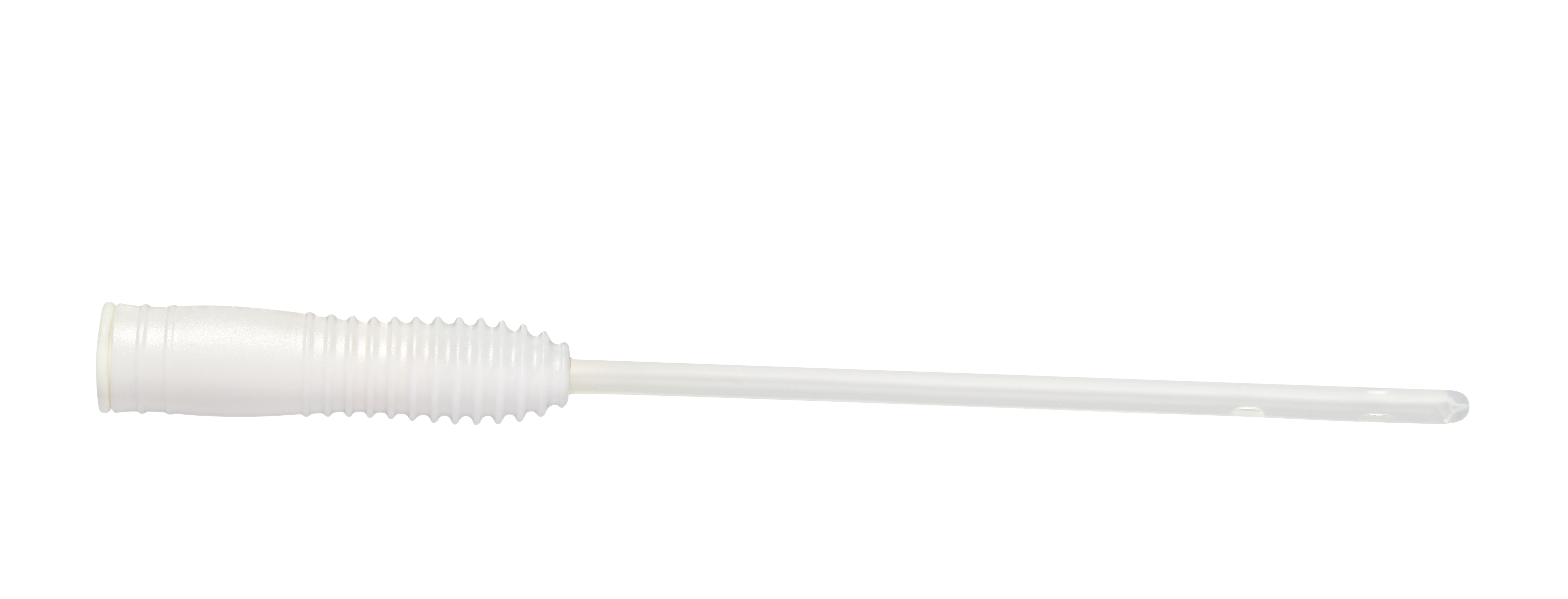
Bladder Problems in Kids
As a parent, you get used to the occasional accident or episode of bedwetting from your child. These are, after all, just part of growing up. However, some children might continue to experience bladder problems, have trouble holding their pee (incontinence), or find it difficult to empty their bladder (retention).
Depending on the cause of these bladder problems, it might be necessary to learn to catheterize in order to empty the bladder fully. This page helps to explain how the body works and why catheterizing might be necessary.

All About pee
How the Body Works - From Drinking to Peeing
- When you drink something it goes down into your stomach (your tummy).
- From there it goes to your intestines and into your blood.
- When your blood gets filtered by your kidneys, the water that is no longer needed gets turned into pee and is sent to the bladder. The bladder looks like a small balloon. It is small when it’s empty but it grows in size when it fills up with pee.
- When the bladder is full it is time to go for a pee.
- From the bladder, there is a tube called the urethra which the pee comes out of when you go.
Why We Need to Pee
Think of your bladder like a sink. When the plug is in you can fill it with water from the tap. If you keep pouring water into the sink without taking the plug out it will overflow, and water will pour onto the floor.
If you keep filling your bladder with urine it will get full and overflow, just like the sink, which means that the pee either goes back up into your kidneys, which can make you ill, or it may force its way down, which will make you wet.
You need to pee many times a day to stop your bladder from overflowing.
How Much Should You Pee?
Most children pee about 5 to 7 times a day - you should probably be peeing this much too. Your doctor or nurse will be able to tell you how many times a day to pee with your catheter.
Different Problems
A lot of things affect your body’s ability to keep the pee in the bladder or to empty the bladder. Usually, if things don’t work the way they should it’s because you have been ill or you may have been hurt.
It can happen to anyone, kids or grown-ups.
- Incontinence is a word that means you wet yourself and can’t help it.
- Retention means you can't have a pee even when you need to.
- You may have one of these problems or both. To be able to pee, your bladder and brain need to talk to each other. Otherwise, the brain doesn’t know that you need a pee and tell your bladder to squeeze it out. Catheters help you to get your pee out when your bladder and brain are not able to talk to each other.
Sometimes you may get an infection, which can make you feel poorly, but your doctor can help. With LoFric catheters, this should not happen very often.
Different Ways to Pee
There are different ways of getting to school – some children go on their bikes and some walk to school.
Similarly, there are different ways to pee. Some people go straight to the toilet, and some pee with the help of a catheter. There’s nothing odd about it, it’s just the easiest way for some people to do it.
What is a Catheter?
 A catheter is a little tube that you can put into your bladder when you need to have a pee - and it will get the pee out for you. The times you need to use your catheter can be fitted into your daily routine. You can do it before and after you go to school as well as during playtime and lunchtime. Sometimes you may need to be reminded by your teacher, parents, or carer, but usually, you’ll be able to remember by yourself.
A catheter is a little tube that you can put into your bladder when you need to have a pee - and it will get the pee out for you. The times you need to use your catheter can be fitted into your daily routine. You can do it before and after you go to school as well as during playtime and lunchtime. Sometimes you may need to be reminded by your teacher, parents, or carer, but usually, you’ll be able to remember by yourself.
When to Use a Catheter
Children will need to use a catheter to pee if they are not able to do so by themselves. There could be many reasons for this, they may have had an injury, been unwell, or have a condition that means they’re not able to pee in the normal way. A catheter is a little tube that you can put into your bladder and it will get the pee out for you.
When you see your nurse or doctor, they will be able to talk to you about using a catheter and they will show you how to use one to pee. They will also talk to you about how many times a day you need to pee with your catheter because it's different for everyone. They will work out a special plan just for you. You can help them by telling them what times work best for you, like school breaks or the time you get home from school.
How to Use a Catheter for Children
Your doctor and nurse are experts in how to pee with a catheter and they will help you become an expert too! Don’t be shy about asking them lots of questions about peeing - no question is too weird or crazy and they will be sure to know the answer.
Getting Started – Tips and Advice for Parents or Carers
The following tips and advice, developed with the help of Gunilla Tibbelin from the Child and Adolescent Habilitation Services Center in Lund, Sweden, will get you started.
Adapt to Your Child
Children who have suffered damage to their spinal cord may have reduced motor function and sensitivity. If so, you will have to adapt the environment and catheterization equipment to your child's condition. Sit steadily and securely. Your child's hands should be free so that they can assist. Allow enough time to complete the procedure, so that time pressure will not force your child to give up.
The routine should be clear to the child, as well as his/her delegated task. Remember that Mom and Dad should also be able to work in a comfortable position! Practice makes perfect, and it does get easier.
Be Patient
As a parent or carer, you need a certain amount of patience to use a catheter with a child (especially when that child is 2-4 years old with a strong will of its own). If your child feels that catheterization is very boring, a television in the bathroom may offer some distraction during the procedure. Teaching a child to empty the bladder using a catheter takes time. Encourage your child to participate in bladder emptying as soon as possible. Be calm and methodical and do it on your child's conditions. With a bit of training and patience, it soon becomes a natural part of your everyday life.
Let Your Child Participate
It's easier to empty the bladder if your child is sitting upright than if he/she is lying down. If your child has not yet learned to sit upright, use a pillow or a similar object to support their back. As soon as your child can sit upright on his/her own, he/she can follow the emptying procedure and maybe even participate more actively.
In the same manner, as you would teach your child to hold a toothbrush and see how it feels, you can let your child hold a catheter while you empty his/her bladder. This can be a way of trying to build an understanding of how catheterizing becomes a part of the daily toilet routine.
When your child is 1-2 years old, it is time to start sitting on the potty or toilet. Take advantage of children's natural curiosity. Let them fetch the catheter, open the catheter bag or maybe even pull it out after they’re finished.
When your child is preschool age, you can start teaching him/her self-catheterization more actively. Use a doll to show how a catheter is used. Sit down and draw pictures together, and explain how urine leaves the bladder. Having a doll with a "pee-pee" hole, where your child can practice inserting a catheter increases your child's skill in handling a slippery catheter. When it is time to empty the bladder, let your child try to find their urethra and insert the catheter by himself/herself.
Even when your child has learned to insert a catheter, it is important that you help make sure that the bladder has been emptied properly and correctly. Catheterization becomes natural for your child if he/she is allowed to participate from as early an age as possible. This contributes to their self-esteem and to greater independence later on in life. By the time your child begins school, it will help if he/she can empty the bladder with a catheter on his/her own.
The video below gives advice on how girls can self-catheterise.
The following video gives advice on how boys can self-catheterise.
Frequently Asked Questions - Children
Children and IC - FAQ
In this section we answer some of the most frequently asked questions on intermittent catheterization in children.

-
Intermittent Catheterization with a Three-Year-Old
Evie and her mother share their story of what it was like to start intermittent catheterization as a young child.

-
How to Choose the Right Catheter
When you're new to catheterization, it makes sense to know what makes one catheter more right for you than another. Here we explore how to choose the right catheter for you.

-
Different Types of Urinary Catheters
What are the different types of urinary catheters? Here we explain the difference between indwelling catheters, intermittent catheters and hydrophilic vs non-hydrophilic catheters.
